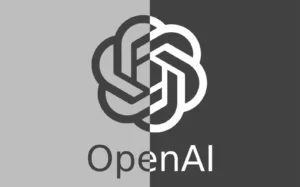Executives from DuckDuckGo, Bing, Yahoo, OpenAI, and Perplexity to Provide Court Testimony on Google’s Monopoly.

Tech Giants in Court: Google’s Monopoly Under Scrutiny
In an upcoming legal battle, representatives from several well-known companies, including DuckDuckGo, Bing, Yahoo, OpenAI, and Perplexity, are set to testify about their experiences with Google’s market dominance. This case represents a crucial moment in the ongoing discussion about competition and fairness in the tech industry.
The Context of the Case
Understanding Google’s Dominance
Google has held a significant share of the search engine market for years, commanding almost 90% of global searches. This dominance raises questions about competition and user choice. Critics argue that such a monopoly can stifle innovation and limit the opportunities for other companies to thrive.
The Role of Testimonies
The testimonies from representatives of competing services are expected to shed light on how Google’s practices impact their businesses and the overall search market. These companies claim that Google uses its position to unfairly promote its own products while depriving competitors of visibility.
Key Players in the Case
DuckDuckGo
DuckDuckGo is known for its strong emphasis on user privacy. The search engine has not relied on personalized tracking, which contrasts sharply with Google’s data collection methods. DuckDuckGo’s representative is likely to focus on how Google’s practices undermine fair competition and the importance of privacy in search.
Bing and Yahoo
Bing, developed by Microsoft, and Yahoo both have struggled to compete against Google despite their long-standing presence in the search market. Executives from these companies will likely discuss how Google’s search algorithms favor its own services, making it difficult for alternative engines to gain users.
OpenAI and Perplexity
OpenAI, known for its advancements in artificial intelligence, and Perplexity, a newer player in the field, will provide insight into how Google’s strategies affect not just search engines but the broader tech landscape. Their testimonies will likely highlight innovative solutions they’ve developed and how a monopolistic environment impedes growth.
Implications of the Case
Effects on Consumers
If the court finds that Google’s practices are indeed monopolistic, it could pave the way for increased competition in the tech industry. This shift may lead to better options for consumers, improved privacy measures, and enhanced services. Users may benefit from a more diverse array of search engines that prioritize different values, such as privacy or user experience.
Broader Industry Reactions
The tech industry is closely watching this case. A ruling against Google could prompt other companies to reassess their practices, potentially leading to more competitive dynamics. On the flip side, a decision in favor of Google might encourage new regulatory measures aimed at controlling monopolistic behaviors.
Potential Outcomes
The potential outcomes of this case could range from reduced market share for Google to the implementation of stricter regulatory measures. If the court rules that Google has violated antitrust laws, it might have to change its business practices significantly, which could reshape the entire landscape of online search.
Conclusion
The court appearance of these tech representatives against Google will not only highlight critical issues related to competition but may also influence the future of the tech industry. As the case unfolds, the implications for consumers, businesses, and the market at large will be a focal point of discussions in the tech community and beyond.






